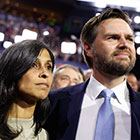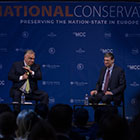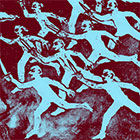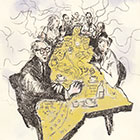
Know Your Enemy: Boys and Girls in America
Matt and Sam talk to screenwriter Dorothy Fortenberry about families, gender, and the 2024 election.


Matt and Sam talk to screenwriter Dorothy Fortenberry about families, gender, and the 2024 election.

Matt and Sam answer listener questions for their 100th episode—and hear from friends of the podcast, new and old.

Matt and Sam talk to Vinson Cunningham about his debut novel Great Expectations, political theater, and Barack Obama.

Matt and Sam interview Daniel Schlozman and Sam Rosenfeld about their new book, The Hollow Parties: The Many Pasts and Disordered Present of American Party Politics.

Matt and Sam revisit J.D. Vance’s 2016 memoir Hillbilly Elegy to try to understand the Republican vice-presidential nominee.

Matt and Sam are joined by historian Suzanne Schneider to discuss how Israeli illiberalism is inspiring the global right.

Matt and Sam interview John Ganz about his new book, When the Clock Broke: Con Men, Conspiracists, and How America Cracked Up in the Early 1990s.

Matt and Sam are joined by Neil J. Young to discuss his new book, Coming Out Republican: A History of the Gay Right.

Tim Barker and Ben Mabie join to tell the story of American labor militancy in the 1930s—and how the right responded.

By looking at right-wing politics around the world, we can better understand conservatives’ abiding preoccupations and priorities, and how they might be thwarted.
Introducing our Spring 2024 issue, “The Global Right.”

Matt and Sam talk to historian David Austin Walsh about his new book, Taking America Back: The Conservative Movement and the Far Right.

Matt and Sam talk to the poet Christian Wiman about his recent book, Zero at the Bone: Fifty Entries Against Despair.

Matt and Sam are joined by historian Ronnie Grinberg to discuss her book Write Like a Man: Jewish Masculinity and the New York Intellectuals.

Matt and Sam talk to B.D. McClay about the right’s freakout over Taylor Swift—and what she can tell us about American fame, fortune, and fear.

Matt and Sam talk to Jacob Heilbrunn about his new book, America Last: The Right’s Century-Long Romance with Foreign Dictators.